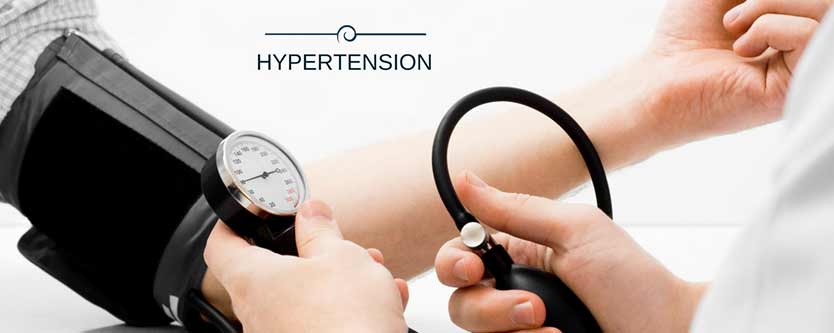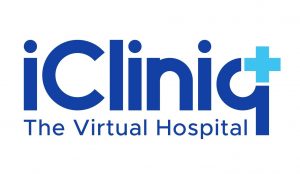What is Blood Pressure? Normally, when your heart beats, the blood is pumped out of the heart to course through the vessels and spread all over your body.
[the_ad id=”6178″] The blood pushed out by the heart in turn pushes against the sides of the blood vessels. The push of blood in the vessel causes a pressure on the wall of the vessels. This pressure of blood on the containing vessels is blood pressure.
Blood vessels are flexible and can widen or constrict to adjust the flow of the blood, and thereby keep the blood pressure normal despite the initiation of problem for a long time. It also helps to keep blood flowing well. When the push of the blood on the vessels becomes too high, or the compliance and the elasticity of the vessels are not sufficient to contain it, the blood pressure may rise gradually. This is hypertension or high blood pressure. There are several reasons for the same. Blood pressure changes throughout the day, and with the level of activity being performed etc.
What Can High Blood Pressure Do to You?
High blood pressure – also called hypertension – causes a vast range of health related problems. The patient may have problems like headache, chest heaviness, sweating, breathlessness, fatigue, or simply a feeling of being unwell. The complications include heart disease and stroke as the most common complications. So in case you are worried about high blood pressure in yourself, a family member, or a friend, your concerns are well-founded, and you should visit a doctor as soon as possible.
Unfortunately, hypertension is surrounded by large number of myths and misconceptions. Discussed here are few of the most common misconceptions about hypertension or high blood pressure.
Myth 1 – High and Uncontrolled Blood Pressure Is Not Something to Be Really Worried About :
· One of the most worrisome facts about high uncontrolled blood pressure is that one may not notice any symptoms. That makes it difficult for the affected person to get to a doctor to have it checked. The second problem that the vast number of doctors face is that the patient does not take the problem seriously because there have been no symptoms. They do not, therefore, realize that high blood pressure can in fact cause significant morbidity and mortality.
· Uncontrolled high blood pressure can damage blood vessels carrying blood to any part of the body especially heart, brain, and kidneys (Heart disease and stroke are the first and second leading causes of death in the U.S).
· Consider it like a water pipe. When the water in the pipe causes too much pressure on the pipe, damage to pipe starts occurring- leakages and ruptures. It’s the same in the body.
· Hypertension is a “silent killer”.
Myth 2 – Is That High Blood Pressure When it Happens Cannot Be Prevented :
Many, especially the elderly take blood pressure for granted, as a part of the old age syndrome they feel comes to every aged. You may have a significant family history of high blood pressure. For one or more reasons, you may think that there’s nothing you can do to prevent high blood pressure. However it can be prevented.
Some of the easy steps one can take to prevent high blood pressure are:
· Maintain a healthy weight by a combination of healthy eating and regular exercise.
· The age old adage – Have A Well Balanced Diet still holds true. As previously said, eat a healthy diet : foods high in nutrients and low in fatty substances, sugars, and salt. Salt that you add at the table or salt added to processed foods you consume. Limit your alcohol intake and avoid Tobacco Products. Minimize your exposure to second hand smoke. Basically, watch you put in mouth.
· Again, as said previously- Get regular exercise. Exercise 30 minutes daily, as tolerated. Not only does it help control your weight, it also helps you relieve your stress, which incidentally happens to be another thing you can do to avoid hypertension from happening.
· Let go off stress : Hormones, neurological and endocrine, increase your heart rate and reduce the compliance and elasticity of blood vessels. This makes blood pressure higher. Exercise helps relieve stress. Other stress relieving techniques could use yoga, listening to music and enjoying a hobby.
Myth 3 – It’s OK As Long As One Number Is Normal :
· A blood pressure has two readings- a systolic blood pressure (the number on top) and a diastolic blood pressure (the number at the bottom).
· The systolic blood pressure represents the pressure that the blood exerts on the walls of the blood vessels when pumped out by the heart. The diastolic blood pressure is the pressure that the blood exerts in a blood vessels in between heartbeats. This is the phase when heart rests. The systolic pressure rises with rising age, while the diastolic pressure drops with rising age.
· Normal blood pressure is measured as 120/80 mm of mercury. A value of 120-139/80-89 is read as pre-hypertension. A value above 140/90 is read as hypertension. Most people worry more about systolic pressure than the diastolic pressure. Many experts say that a high diastolic blood pressure can cause more damage than a high systolic pressure. The fact remains that both the values are equally significant.
Myth 4 – ‘Treatment Is About Giving Up Favoured foods, And Tolerating Serious Side Effects’:
While it does take time to individualize a treatment plan, a good treatment plan is likely to have following components, elementary to a good plan:
· A well balanced meal plan. Lots of them are in vogue e.g. DASH diet (DASH diet means Dietary Approaches to Stop Hypertension), Mediterranean diet. This includes avoiding alcohol and smoking.
· A well controlled and healthy weight.
· Medicines prescribed should be adhered to. It is better to avoid forgetting the consumption of the medicines.
Myth 5 – Many Perceive That Treatment Does Not Work:
· The patient and a doctor have to work a long way to get to a good regimen. The patients most commonly skip appointments or simply skip the medicine.
· One needs to follow on the appointments and have ones blood pressure checked up regularly. Besides skipping medicines will not help the cause of controlling blood pressure.
· Communicate with the doctor. If you feel the doctor has not understood you, or you have not been able to explain yourself, emphasize on saying so. Many people are simply too scared of talking to the doctors. Others just assume the doctors know what one is suffering from. And often the doctors don’t listen to the patient. But then again, a patient has to know when he has been heard. Effective communication is the key.
Source:

